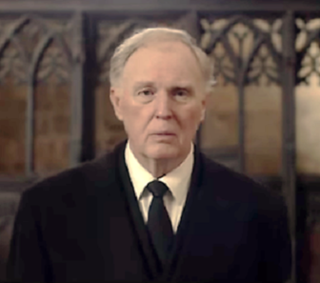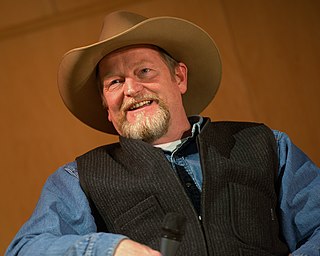A Quote by Terry Pratchett
Plot exposition that can be gently wound out by the authorial voice and internal monologue of a character in the length of a page has to be delivered in a matter of seconds on the stage.
Related Quotes
An excess of development can undermine the most ephemeral but distinctive tool a writer possesses: authorial voice. A writer's voice is as individual and marked as a thumbprint, and is a playwright's truest imprimatur. It is as innate as breathing, and can be as unique as any genetic code. By its very singular nature, it is seldom born in the act of collaboration. True authorial voice always pre-dates the first rehearsal of a text. And it is - and will always be - an author's most distinguishing and valuable feature.
I was applying to the art school, but there was a checklist that said I had to do either production design or stage management or acting. I thought, "I don't want to be an actor, but I know production and stage management take acting classes" - this is literally my internal monologue. I was like, "Designers don't have to take acting classes. Cool. I'll check that box".
In a 22-page comic, figuring an average of four to five panels a page and a couple of full-page shots, a writer has maybe a hundred panels at most to tell a story, so every panel he wastes conveying a.) something I already know, b.) something that's a cute gag but does nothing to reveal plot or character, or c.) something I don't need to know is a demonstration of lousy craft.
I hope that 'Gambit' doesn't take ten years, but it takes a little honing to get that tone and that voice exactly right. The character has such a specific voice in the comic, in the same way that Deadpool has a specific voice in the comic, that we want to make sure that we capture that voice on the page.
If there's a character type I despise, it's the all-capable, all-knowing, physically perfect protagonist. My idea of hell would be to be trapped in a four-hundred page, first-person, first-tense, running monologue with a character like that. I think writers who produce characters along those lines should graduate from high school and move on.
One of the strangest experiences one can have is to sleep on stage, as I once did in Sydney when I'd lost the key to my flat. I had to stay at night in a bed, which conveniently was on stage because my character Sandy Stone did his monologue from a bed. To wake up looking at a shadowy auditorium is a very peculiar feeling.


































